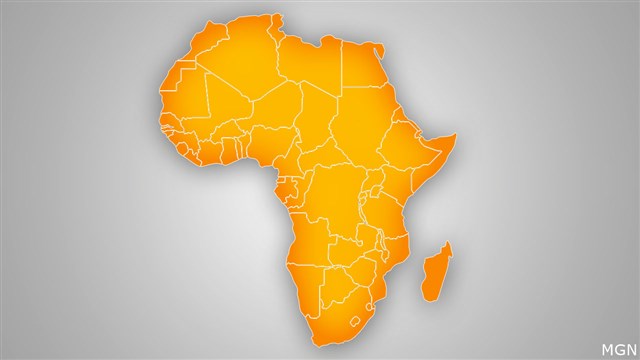Debt as a form of imperialism went global, as mentioned in David Graeber’s 2011 book “Debt: The First 5,000 Years.” He frames the IMF (International Monetary Fund) as the world’s debt enforcers or “The high-finance equivalent of the guys who come to break your legs.” In his book, Graeber explained how modern-day capitalism encourages the debt that underdeveloped Global South countries, including nations in Africa.
“Unlike advanced (Western) economies, which have highly developed local-currency bond markets (financial market where participants can issue new debt), African countries are subject to prohibitively high interest rates and often cannot borrow from international investors in their own currency (the ‘original sin’ of sovereign-debt markets).

Instead, over 80 percent of African countries’ external debt is denominated in dollars or euros, which heightens their vulnerability to monetary-policy changes by a handful of systemically important central banks—and thus to a ‘debt doom loop’ that only exacerbates their debt burdens,” economist Hippolyte Fofack recently wrote in Project Syndicate.
Fofack is a former chief economist and director of research at the African Export-Import Bank and is currently a research associate at the Harvard University Center for African Studies.
If you stand Africa’s increasingly seen as unsustainable economic death doom loop burden side-by-side with America’s growing national debt—which has surged to over $34.5 trillion—it begs to question, how long can this go on?
Last year, Mark Spitznagel, co-founder and CIO of the private hedge fund Universal Investments told Fortune magazine that “when that rising debt combines with decades of loose monetary policy that lifted asset prices ever higher, growing piles of consumer debt, and businesses’ penchant for leaning on credit during times of stress, it creates a ‘tinderbox economy’ that could go up in flames in a moment’s notice. It’s the ‘greatest credit bubble’ in human history.” He warned, “it will have its consequences.”
Though Spitznagel’s focus was the immorality of America’s reliance on debt and the fact that future generations “will bear the burden,” no mention was made of the fact that when Western capitalism gets a cold, Africa catches the flu.
According to Fofack, amid increasing financial volatility or the anxiety that fluctuating prices produces, along with supply-chain vulnerabilities, and inflationary pressures, “many African countries have already adopted difficult and unpopular policies—including removal of government subsidies and aggressive interest-rate hikes, despite widespread poverty and Great Depression-levels of unemployment—in a bid to escape the debt doom loop and foster macroeconomic stability.”
A case in point is Nigeria. With 218.5 million people, it is Africa’s most populous nation state, with unemployment currently hovering at 30 percent. According to Fofack, “The central bank recently raised its main lending rate by 400 basis points, to 22.75 percent, to bolster (Nigeria’s currency) the Naira and tame inflation, stoked by exchange-rate pass-through resulting from the Naira’s sharp depreciation against the dollar.”
“This exchange-rate depreciation—which increases debt-service costs—has been further exacerbated by capital outflows, with investors chasing higher relative returns following interest-rate hikes by the U.S. Federal Reserve,” Fofack noted.
During a forum sponsored by The World Bank Live, Andrew Dabalen, a chief economist for the Africa region of the World Bank, spoke of the “fragility” of Africa’s economic plight.
“This is where the fragility comes, and there are three reasons why it’s very fragile. One is many countries still carry very high levels of debt. Debt service costs and liquid and cash flow problems are massive. Just to give you a marker, last year, on average, African countries spent 46 percent of their revenues on servicing debt.
That puts a lot of squeeze on public finances to finance education, health, infrastructure that we needed … . That is still a problem that has not been resolved. Second, alternative sources or supplements, finances that usually could supplement public finances when they are not available, are drying up.
For example, the FDI, which will not add to any debt, foreign direct investment, which will not actually add to any debt for a country, has been declining, and it continues to decline. There’s no end in sight in a turnaround,” Dabalen explained.
Moreover, the continent has long suffered from a chronic infrastructure deficit that has impeded structural transformation to sustain heightened exposure to global volatility and narrowed governments’ capacity to crowd in private capital to diversify the sources of growth and reduce the imbalance between debt and exports, added Fofack.
The tragic results led to the collapse of all the most basic support for some of the world’s poorest and most vulnerable countries, wrote Graeber.
The Geopolitical Economy Report by Ben Norton echoes demands that imposed a series of harsh right-wing neoliberal economic policies as part of the so-called structural adjustment programs.
These policies include “forcing countries to privatize state assets, reduce the minimum wage, cut social services, reduce spending on health care and education (and) privatize all state-owned companies, (as well as) deregulate markets,” the report noted. These are the “free market fundamentalist policies that are imposed on countries, especially in the Global South when they can’t pay back debt to the World Bank or the IMF.”
Follow @JehronMuhammad on X, formerly Twitter













